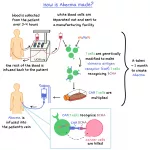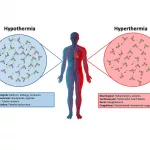Ever finished a marathon of meetings, stared at a screen for hours, and then felt like your mind just… stopped? You’re not alone. That foggy, heavy feeling in your head is what professionals call brain fatigue. It’s more than just “being tired”; it’s a genuine depletion of your brain’s energy reserves, and it can sneak up on anyone – from students pulling all‑nighters to busy parents juggling work and kids.
In the next few minutes, I’m going to walk you through what brain fatigue really is, why it shows up, how to recognize it, and—most importantly—ten science‑backed ways to shake it off. Think of this as a friendly chat over coffee, with a few helpful tips you can try right now.
What Is Brain Fatigue?
Definition in Plain English
Brain fatigue, also known as mental fatigue or mental exhaustion, is a state where the brain’s ability to concentrate, remember, and make decisions drops dramatically. It’s the mental equivalent of a car running on empty.
How the Brain Gets “Tired”
Neurological Basis
Scientists have traced part of the problem to the anterior cingulate cortex (ACC)—a little brain region that helps us stay focused and motivated. When you push your mind for too long, ACC activity wanes, making tasks feel harder and less rewarding. According to a 2023 Frontiers study, the ACC literally “turns down” when we experience prolonged mental strain.
Energy Resources
Your brain consumes about 20% of the body’s glucose, and it needs oxygen, neurotransmitters, and a steady supply of nutrients to keep firing. When you’re on a marathon of problem‑solving, those stores get depleted, and the brain releases excess glutamate—a molecule that, in high amounts, can make you feel “wired” but also cramped. A 2022 study in Current Biology linked long periods of mental work to spikes in glutamate, which explains why you crave a quick break after a tough project.
Brain Fatigue vs. Normal Tiredness
- Normal tiredness: You feel physically sleepy; a nap usually fixes it.
- Brain fatigue: Even after rest, you struggle to concentrate, recall words, or stay motivated.
Why It Happens
Prolonged Mental Work
Endless emails, back‑to‑back Zoom calls, or a coding sprint that stretches into the night all demand sustained attention. That constant “on” mode exhausts the ACC and depletes brain glucose.
Chronic Stress & Emotional Load
The body’s stress system (the HPA axis) pumps cortisol. In the short term, cortisol sharpens focus, but long‑term elevation blunts neuro‑plasticity and makes perseverance feel like climbing a mountain.
Sleep Deprivation
During deep sleep, the brain clears metabolic waste and replenishes glycogen. Skipping those 7‑9 hours means you start the next day with a brain that’s still half‑full of yesterday’s “junk.”
Lifestyle Triggers
- Poor Nutrition: Low‑glycogen diets starve the brain of fuel.
- Sedentary Habits: A lack of movement reduces dopamine and serotonin release.
- Digital Overload: Constant notifications keep the brain in a state of low‑level alarm.
Medical Conditions
Sometimes brain fatigue is a symptom of something bigger—like chronic fatigue syndrome, depression, hypothyroidism, or early neurodegenerative disease. If the fog lasts for weeks despite lifestyle tweaks, consider a professional check‑up.
Spotting the Signs
Cognitive Indicators
- Frequent memory lapses (“What was I about to type?”)
- Slower decision‑making
- Difficulty focusing on a single task for more than a few minutes
Emotional & Behavioral Clues
- Irritability or sudden mood swings
- Loss of motivation, especially for tasks that once excited you
- Reduced perseverance—tasks feel endless.
Physical Signals
- Headaches or eye strain
- Muscle tension, especially in the neck and shoulders
- Light‑headedness after intense mental work
When to Seek Help
If you notice any of the above persisting for more than six weeks, or if you experience severe mood changes, it’s time to talk to a healthcare professional. They can rule out underlying conditions and tailor a treatment plan.
10 Proven Strategies to Beat Brain Fatigue
| Strategy | What It Does | Quick Tip |
|---|---|---|
| Micro‑breaks (90‑minute sprints) | Restores ACC activity & lowers glutamate buildup. | Take a 5‑minute stretch after each sprint. |
| Mindfulness & breathing | Reduces cortisol, shifts the nervous system to “rest‑and‑digest.” | Try a 2‑minute 4‑7‑8 breath before lunch. |
| Physical movement | Boosts dopamine, serotonin, and brain‑derived neurotrophic factor. | Walk briskly for 10 minutes between meetings. |
| Balanced meals & hydration | Feeds glucose and provides amino acids for neurotransmitters. | Eat protein + complex carbs at breakfast. |
| Smart caffeine use | Temporarily lifts alertness without crashing. | One 100 mg cup before a tough task; avoid after 2 pm. |
| Natural light exposure | Regulates circadian rhythm, improves alertness. | Spend 20 minutes outside early morning. |
| Sleep hygiene | Allows brain‑glycogen restoration. | Keep the bedroom cool, dark, and limit screens. |
| Digital detox | Reduces information overload and ACC strain. | Put phone on “Do Not Disturb” 30 minutes before bed. |
| Nutrient support | Omega‑3s, B‑vitamins, magnesium protect neuronal membranes. | Take 1 g fish oil and a handful of leafy greens daily. |
| Professional assessment | Identifies hidden medical causes and creates a personalized plan. | Schedule a neuro‑psychology consult if symptoms linger. |
These strategies aren’t magic pills; they’re practical habits you can mix and match. Pick two that feel doable this week, and watch your mental clarity improve.
Everyday Lifestyle Hacks for Ongoing Clarity
Power‑nap Protocol
Ten to twenty minutes of light sleep can boost memory consolidation without leaving you groggy. Set an alarm, find a quiet spot, and let your brain reset.
Brain‑Food Snacks
Keep a stash of almonds, blueberries, or a square of dark chocolate. They supply antioxidants and healthy fats that keep neural pathways humming.
Task‑Batching
Group similar tasks together—answering emails, drafting reports, making calls. This reduces the mental “switch cost” that drains the ACC.
Social Connection
Even a short chat with a friend releases oxytocin, which buffers stress hormones. It’s a quick, free reset button.
Creative Play
Do a quick puzzle, doodle, or hum a tune. Creative activities re‑activate the prefrontal cortex, giving it a gentle workout without the pressure of “performance.”
When Fatigue Becomes Chronic: A Medical Perspective
Acute vs. Chronic Brain Fatigue
Acute fatigue typically clears after a good night’s sleep or a short break. Chronic fatigue lingers for months and may be tied to conditions like chronic fatigue syndrome, depression, or early‑stage neurodegeneration.
Common Diagnoses
- Chronic Fatigue Syndrome (CFS)
- Major Depressive Disorder
- Hypothyroidism
- Multiple Sclerosis
- Early Alzheimer’s disease
Diagnostic Work‑Up
A thorough evaluation might include blood panels (thyroid, vitamin D), a sleep study, and possibly an MRI to rule out structural issues.
Treatment Options
- Graded exercise therapy – slowly building stamina.
- Cognitive‑behavioral therapy – re‑training thought patterns.
- Medication (e.g., modafinil) under specialist supervision.
- Targeted nutritional supplementation.
Putting It All Together
Brain fatigue is a real, measurable phenomenon, but it’s also highly manageable. By recognizing the signs early, tweaking your daily habits, and, when necessary, seeking professional help, you can reclaim mental stamina and keep your perseverance intact.
So, which of the ten strategies will you try first? Maybe a short walk after your next meeting, or swapping that third cup of coffee for a 10‑minute breathing break? The good news is that even tiny changes can add up to big improvements.
Conclusion
Living in a world that constantly demands our attention can leave our brains feeling fried, but it doesn’t have to stay that way. Understanding what brain fatigue is, why it shows up, and how to treat it gives you the power to protect your most valuable asset—your mind. Start with one small habit today, notice the difference tomorrow, and remember: you deserve mental clarity as much as you deserve a good night’s sleep.
Feel free to explore more about mental exhaustion, learn how to build perseverance in the face of fatigue, and dive deeper into the science of cognitive fatigue. Your brain will thank you.

























Leave a Reply
You must be logged in to post a comment.